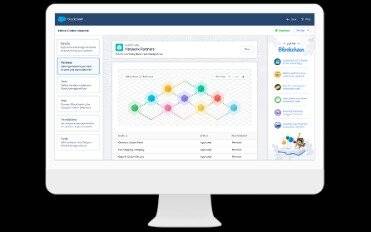What Are The Benefits Of Direct Deposit
Content

You can learn about some of the best options in our review of Paychex, our Gusto review and our QuickBooks Payroll review. Setting up direct deposit can take anywhere from one day to a few weeks, depending on the provider. This wait period applies every time new employees are added to the system. Clearly, employers and employees benefit from a payroll system that involves the use of automatic deposits to distribute salaries and wages. Nationally, more than 500,000 corporate employers with 50 million employees — approximately 50 percent of private sector wage earners — use payroll Direct Deposit. In addition, 92 percent of government employees are paid through Direct Deposit.
Using What Are The Benefits Of Direct Deposit For Employers And Employees? can be an effective way to transact business, especially if your company has employees. Understanding the pros and cons of direct deposits can help you make the right decision for your business. Direct deposit cuts all these steps out by having payments transferred directly into your account.
Save time and energy
Let our licensed team of 401k professionals help you decide the best type of plan to offer, whether to involve a match, a safe harbor arrangement, or something like automatic enrollment. At the time of hire you will be given the opportunity to enroll in direct deposit through the new hire process. After that, you can update your direct deposit preferences at any time. You can spit up your deposit into many accounts or even multiple banks. Materials for some products and services are available in Spanish, Korean, Vietnamese, Mandarin, and other languages spoken in the communities we serve. Features that growing businesses should look for include links to other systems, like HR and ERP, as well as security roles and alerts that will help guard against data theft.
Do banks benefit from direct deposit?
They like an account that gets re-upped with funds on a regular basis. Direct deposit makes that much more likely to occur. Why – because transaction accounts earn revenue when the account holder spends money with a VISA/MC/AMEX. If you have money in your account, they benefit.
The opinions expressed are the author’s alone and have not been provided, approved, or otherwise endorsed by our partners. Brainyard delivers data-driven insights and expert advice to help businesses discover, interpret and act on emerging opportunities and trends. Funds are delivered quickly so there’s minimal wait time and faster access to wages. At ADP, we believe sports and business both require the right approach. That’s why we’ve partnered with some of the top athletes in the world. At ADP, we are committed to unlocking potential — not only in our clients and their businesses, but in our people, our communities and society as a whole.
What are the benefits of direct deposit?
Payroll providers usually include direct deposit as part of their basic service for small businesses with no additional fees. Banks and third party applications, however, may charge employers per wire transfer, per employee. If the payroll provider has self-service capability, employees may be able to enter their bank information themselves. Otherwise, the employer will be responsible for getting the financial institution the necessary details.

Continuing to encourage this strategy as part of a financial wellness program can set the framework for a financially stable workplace. If you have 2000 employees and cut paper checks for 4%, that means 80 employees require increased payroll costs. The vast majority of Americans appear to receive their paycheck via direct deposit. In the 2017 “Getting Paid in America” survey by National Payroll Week, data shows that 93.74% of the 34,869 respondents receive their paycheck via direct deposit.
How does direct deposit work?
If your employer pays by check, you need to either pick the check up in person or wait for it to arrive in the mail. Depositing the check requires a trip to the bank and wait time for it to clear, which can take more than a day. This may not be a realistic option if you’re part of a remote or globally distributed workforce. Excessive delays can even create issues with payroll compliance. Having control over where the paycheck goes is another way direct deposit provides flexibility and convenience for employees.
What are three advantages of direct deposit?
Direct deposit is faster, easier, and more convenient than checks. It also totally eliminates the risk of lost or stolen checks because money goes directly into a recipient's account. In addition, direct deposit gives recipients faster access to, and more control over, their money.
Ultimately, this will create a more equitable, employee-centric pay ecosystem. LLCs and S corporations are different aspects of business operations, but are not mutually exclusive. Use this guide to learn more about the difference between an LLC vs. an S corporation. If an LLC, or Limited Liability Company, seems like the ideal vehicle for your side business, you may be wondering if you can form an LLC while employed at another job. However, direct deposit can become a problem in eviction procedures. Landlord-tenant law varies greatly from state-to-state, between municipalities, and as the laws pertain to residential leases vs. commercial leases.
Learn How NetSuite Can Streamline Your Business
Should something popup – vacation, bad weather, emergency – and an employee is unable to receive or deposit their check in a timely manner, financial issues can arise. Employees with paper checks may be incentivized to leave work early or take long lunch breaks on payday to deposit their checks. Direct deposit eliminates this workplace distraction and allows for improved productivity on payday. There are six easy steps you should take to set up direct deposits for employees. Not only this but you can also run into problems trying to cash the check. For example, if your bank is not the same as your company’s bank, verification can take a couple of days – meaning you’ll need to wait to access your own money.

